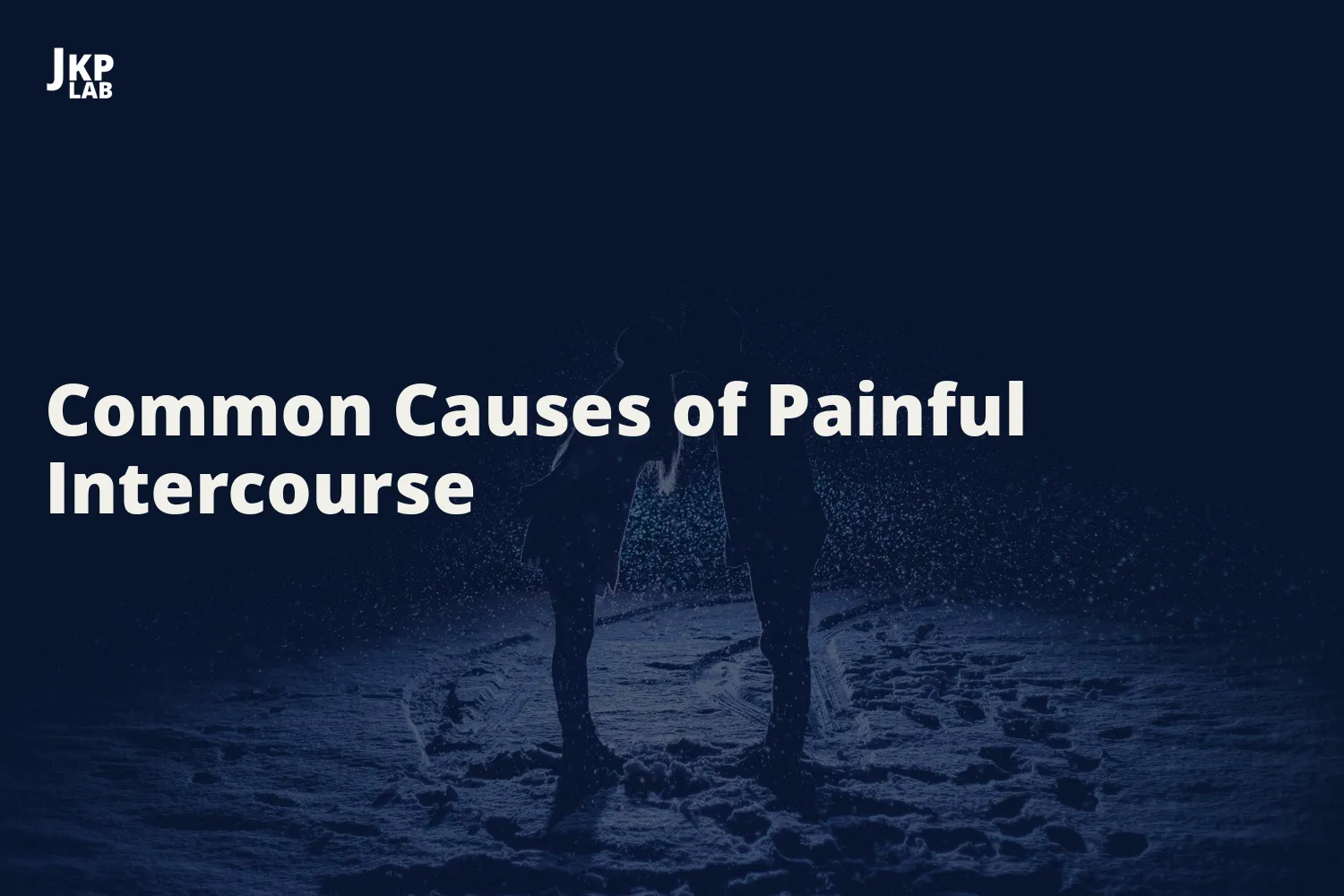
Understanding Dyspareunia in Older Adults
Dyspareunia is a term that many may not be familiar with, but it’s essential to understand, especially for older adults. Simply put, dyspareunia refers to painful intercourse. It’s a condition that can affect anyone, but older adults often face this issue due to various physical and emotional reasons.
What is Dyspareunia?
Dyspareunia, at its core, is the experience of pain during or after sexual intercourse. The pain can range from mild discomfort to severe and can occur at the start, during, or after the act. It can be felt on the external genitalia or deep within the pelvis.
Why it’s Crucial to Address
Addressing dyspareunia is not just about physical well-being, but also about emotional health and relationship quality. Pain during intimacy can lead to feelings of inadequacy, frustration, and even depression. It can strain relationships, leading to distance between partners.
Factors Leading to Dyspareunia in Older Adults
Several factors contribute to dyspareunia as we age:
-
Hormonal Changes: As both men and women age, there’s a decline in sex hormones. For women, reduced estrogen levels post-menopause can lead to vaginal dryness, making intercourse painful. In men, decreased testosterone can lead to erectile issues and other sexual dysfunctions.
-
Medical Conditions: Conditions such as arthritis, diabetes, or urinary incontinence can interfere with sexual function, leading to discomfort or pain during intercourse.
-
Surgeries or Treatments: Past surgeries or treatments in the pelvic region can sometimes result in pain during intercourse later in life.
-
Emotional Factors: Past traumatic experiences, anxiety, or unresolved relationship issues can also play a part in dyspareunia.
For a deeper dive into the causes, symptoms, and overall understanding of dyspareunia, consider reading this comprehensive guide on the topic: all you need to know about painful sex .
Conclusion
Understanding dyspareunia is the first step to addressing it. By recognizing its existence and the reasons behind it, older adults and their partners can take proactive measures to seek remedies and enjoy a fulfilling intimate life.

Common Causes of Painful Intercourse
When it comes to dyspareunia or painful intercourse, several factors can contribute. It’s essential to understand these causes, as they pave the way for effective remedies.
Physical Causes
Hormonal Changes: As mentioned previously, hormonal fluctuations, especially in women, can lead to vaginal dryness. This lack of lubrication can make intercourse uncomfortable or painful.
Medications: Some medicines, especially those related to hypertension, depression, or some allergies, can decrease sexual desire or cause vaginal dryness.
Infections: Genital or urinary tract infections can cause pain during intercourse. These infections can result in itching, burning, or soreness.
Injuries: Any injury to the genital area, perhaps from an accident or surgery, can result in pain during intimacy.
Emotional Causes
Stress: Excessive stress or anxiety can affect one’s sex life. It can lead to reduced libido and can make the act of intercourse painful.
Psychological Trauma: Past traumatic events, especially those related to sexual abuse or assault, can result in painful intercourse later in life.
Relationship Issues: Problems within a relationship, such as lack of trust or unresolved conflicts, can make intercourse painful. It’s not just about physical compatibility but emotional connection as well.
Other Factors
Childbirth: For women, giving birth can change the structure of the genitals, leading to pain during intercourse.
Medical Treatments: Certain medical treatments, especially radiation or chemotherapy, can result in reduced sexual desire and painful intercourse.
The Takeaway
Painful intercourse or dyspareunia can be a result of various causes, both physical and emotional. Recognizing these can help individuals and couples find appropriate remedies and regain a joyful intimate life.

The Emotional Impact of Dyspareunia
Dyspareunia, or painful intercourse, isn’t just a physical concern. It carries with it a significant emotional weight that can affect an individual’s self-worth, relationships, and overall well-being.
Feeling Isolated
Many people who experience dyspareunia often feel alone in their struggle. They might believe that they are the only ones facing this issue. This feeling of isolation can lead to a reluctance to seek help or discuss the problem.
Reduced Self-Esteem
Pain during intercourse can make an individual question their self-worth. They might think there’s something wrong with them or that they are inadequate. Over time, this can result in a severe blow to their confidence and self-esteem.
Impact on Relationships
For couples, dyspareunia can lead to distance and misunderstandings. One partner might not fully grasp the pain the other is experiencing. This lack of understanding can lead to feelings of resentment or frustration. Both partners might also experience guilt or sadness, thinking they are the cause of the other’s pain.
Fear and Anxiety
Those with dyspareunia might begin to associate intimacy with pain. This can create a sense of dread or anxiety when thinking about being intimate. Over time, this fear can make them avoid intimacy altogether.
A Ripple Effect
The emotional impact of dyspareunia doesn’t stop with the individual. It can have a ripple effect, impacting their relationships, family, and even their social life. They might avoid social situations or gatherings where intimacy or relationships are a topic of discussion.
The Importance of Communication
Open dialogue is crucial. Sharing feelings and concerns can help individuals and their partners better understand dyspareunia and its effects. Communication can pave the way for seeking solutions and regaining a harmonious intimate life.

Natural Solutions for Boosting Libido
In the quest to address dyspareunia and improve intimate experiences, many individuals turn to natural remedies. These solutions can help in boosting libido and ensuring a more enjoyable intimate life without the side effects commonly associated with chemical treatments.
Dietary Choices
Certain foods are known to have aphrodisiac properties that can help in increasing desire. Incorporating foods like dark chocolate, oysters, strawberries, and almonds can potentially boost libido.
Herbal Solutions
Many cultures have relied on herbal remedies for centuries:
-
Ginseng: This herb, especially the red variant, is believed to have properties that can enhance sexual function and desire.
-
Maca: Often referred to as “Peruvian ginseng”, this root vegetable is believed to increase stamina and sexual desire.
-
Ginkgo Biloba: Commonly known for its cognitive benefits, this herb can also potentially help in increasing blood flow to the genital areas, improving sexual function.
Regular Exercise
Engaging in regular physical activity not only improves overall health but can also enhance libido. Exercise increases blood flow throughout the body, including the genital areas, and releases endorphins, which can boost mood and desire.
Mindfulness and Meditation
Mindfulness practices, including meditation, can help individuals be more present during intimate moments. It can also assist in reducing anxiety and stress, which are common culprits behind reduced libido.
Essential Oils
Some essential oils, like ylang-ylang, rose, and sandalwood, are believed to have aphrodisiac properties. When used in massages or aromatherapy, they can set the mood and help increase intimacy levels.
Stay Hydrated
Drinking enough water is essential for overall well-being. Proper hydration ensures smooth skin, better mood, and can also play a role in maintaining lubrication, making intercourse more comfortable.
The Bottom Line
Nature offers a bounty of solutions that can aid in addressing libido-related concerns. While results might vary from person to person, these natural remedies can serve as a starting point for those looking to enhance their intimate lives.

How Spanish Fly Pro Can Help
In the vast realm of solutions available for boosting libido and addressing dyspareunia, one product stands out due to its unique blend of natural ingredients and efficacy: Spanish Fly Pro.
What is Spanish Fly Pro?
Spanish Fly Pro is a dietary supplement designed to enhance sexual arousal in both men and women. Derived from a blend of natural ingredients, it’s aimed at increasing sex drive and the potential for more satisfying intimate experiences.
A Natural Approach
Spanish Fly Pro values the power of nature. It harnesses potent natural ingredients, ensuring that users receive a product free from harmful chemicals.
Increases Arousal and Desire
By taking Spanish Fly Pro, individuals might notice a marked increase in their sexual arousal. This heightened sensation can lead to more profound and pleasurable intimate moments.
Helps in Achieving Orgasms
For many, achieving an orgasm can be challenging. Spanish Fly Pro not only boosts libido but also improves the ability to achieve orgasms, making intimate moments more satisfying.
Easy to Use
One of the standout features of Spanish Fly Pro is its ease of use. It’s designed for hassle-free consumption, ensuring that individuals can integrate it into their routine without inconvenience.
Suitable for Both Men and Women
While many products in the market cater to one gender, Spanish Fly Pro is versatile. It offers benefits for both men and women, making it a go-to solution for couples.
Concluding Thoughts
For those seeking a natural boost to their intimate lives, Spanish Fly Pro offers a promising solution. With its blend of natural ingredients and a proven track record, it can be a game-changer in addressing dyspareunia and enhancing sexual experiences.

Talking to Your Partner About Dyspareunia
Discussing dyspareunia with a partner can be challenging. However, open communication is crucial for understanding, support, and finding a solution together.
The Importance of Dialogue
When faced with painful intercourse, keeping silent can lead to misunderstandings. Partners might interpret the reluctance to engage in intimacy as a lack of interest. By discussing the issue, couples can work together to find ways to address the problem.
Choose the Right Time and Place
Initiating a conversation about dyspareunia requires a comfortable and private setting. It’s best to choose a time when both partners are relaxed and free from distractions.
Be Honest and Direct
It’s essential to be clear about the feelings and experiences related to dyspareunia. By being direct, individuals can ensure that their partners understand the extent and nature of the pain.
Listen Actively
While it’s essential for the one experiencing dyspareunia to express themselves, it’s equally crucial for the partner to listen actively. This means showing empathy, asking questions, and avoiding interruptions.
Educate Together
Often, the partner might not understand the intricacies of dyspareunia. By researching and learning together, couples can gain a better understanding of the condition. This shared knowledge can help in finding solutions, such as considering supplements like Spanish Fly Pro.
Consider Professional Help
If communication becomes too challenging, or if the couple feels they need additional support, seeking couples therapy or counseling can be beneficial. A professional can provide guidance on how to navigate the issue and offer strategies to improve intimacy.
The Road Ahead
While dyspareunia can be a sensitive topic, open dialogue can pave the way for understanding, healing, and improved intimacy. By addressing the issue head-on and working together, couples can find ways to regain a satisfying and pain-free intimate life.

Seeking Professional Help and Final Thoughts
Dyspareunia, while common, doesn’t have to define one’s intimate life. There are avenues available to help understand and manage the condition.
Consult a Medical Professional
It’s essential to consult with a healthcare provider when experiencing painful intercourse. A medical professional can diagnose the underlying cause of dyspareunia, recommend treatments, and provide advice on suitable solutions, such as supplements.
Therapeutic Interventions
For some individuals, therapy can be a powerful tool. A trained therapist or counselor can offer coping mechanisms, relaxation techniques, and exercises to help address dyspareunia and its emotional toll.
Embracing a Holistic Approach
Combining different strategies can be more effective than relying on one. Along with medical treatments, considering natural remedies, lifestyle changes, and dietary supplements like Spanish Fly Pro can offer a comprehensive approach to addressing dyspareunia.
Final Thoughts
Dyspareunia, while distressing, is not insurmountable. By seeking guidance, communicating with partners, considering natural remedies, and embracing a holistic approach, individuals can reclaim their intimate lives. It’s a journey, and with the right support and resources, a more fulfilling and pain-free intimate experience is within reach.